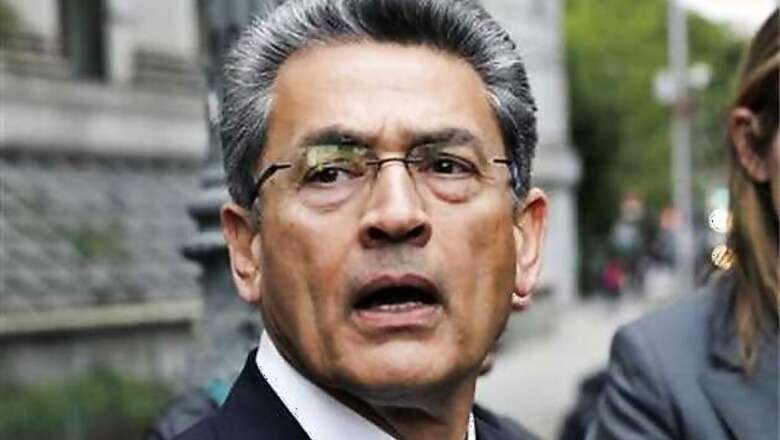
views
New York: Twelve jurors began deliberating on Thursday whether US prosecutors had proven their insider-trading case against former Goldman Sachs Group Inc board member Rajat Gupta.
The Manhattan federal court jurors, among them a retired librarian, a non-profit organization executive and a school counselor, are to decide on five charges of securities fraud and one charge of conspiracy.
Prosecutors accused Gupta, 63, of giving secret financial information between March 2007 and January 2009 to his one-time friend and business associate, Raj Rajaratnam, while serving on the boards of Goldman Sachs and Procter & Gamble Co.
Rajaratnam, founder of the Galleon Group hedge fund, was convicted at trial a year ago and is serving an 11-year prison term.
Gupta is a former head of the McKinsey & Co management consultancy and was prominent in philanthropies such as the Bill and Melinda Gates Foundation.
As US District Judge Jed Rakoff read his instructions to the jury, Gupta sat at the defense table, leafing through a copy of the 24-page document. The judge then sent the jurors to a guarded room to begin their deliberations.
The charges carry a maximum possible prison sentence of 25 years.
Prosecutors and defense lawyers presented closing arguments on Wednesday after a trial lasting more than three weeks.
Prosecutors said Gupta helped Rajaratnam make millions of dollars and stood to benefit because of his investments with Rajaratnam and position as chairman of Galleon International. They said evidence in phone logs, trading records and witness testimony corroborated the circumstances in which Gupta tipped the hedge fund manager.
Defense lawyers argued that the case was purely circumstantial and speculative. They said there was no direct evidence such as phone taps to prove what prosecutors say Gupta told Rajaratnam about company board meetings.
On the securities fraud charges, the instructions said the burden was on the prosecution to prove to the jury that "in anticipation of receiving at least some modest benefit in return" Gupta divulged confidential information "with the expectation that Mr. Rajaratnam or his associates would trade on that information."
To convict, the jurors must find that Gupta took part in a scheme "knowingly, willfully, and with intent to defraud the company." The conspiracy charge also has three elements of proof, including that Gupta intentionally joined it.

















Comments
0 comment